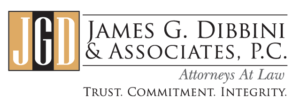The Rising Tide of Unpaid Cooperative Corporation Maintenance Arrears Challenges, Processes, and Solutions
The Problem
The cooperative corporation (co-op) community was not spared from the challenges and fallout of the housing bubble and financial crisis. As was the case with homes, some lenders provided more house—or in this case more co-op—than borrowers could afford. At alarming rates, co-op boards are finding themselves with shareholders who are unable to maintain monthly payments, resulting in rapidly increasing maintenance arrears.
When seeking to resolve unpaid arrears, co-op boards are faced with a litany of options from whether to obtain money judgments and collect by levying bank accounts and garnishing wages, to seeking to evict the shareholder and cancel their shares, to renting out vacant units or selling them at auction or private sale. Each of these potential paths involves risk and requires significant interaction with banks, shareholders, management companies, court officials, auctioneers, not to mention attorneys representing each of the interests. Co-op boards find themselves engulfed in legal jargon and terms such as recognition agreement, proprietary lease, uniform commercial code, and appreciating the difference between real and personal property.
Options and Process
Co-ops facing problems with unpaid arrears often seek to “cancel” shares owned by delinquent shareholders and sell the units/shares at either a private sale or at a public auction. Much of this share cancellation and auction process is governed by Article 9 of the Uniform Commercial Code, which provides for a lengthy, onerous, and very strict procedure for accomplishing what is essentially a type of foreclosure.
Before moving forward with an Article 9 sale, an in depth assessment of the situation and discussion of options must take place wherein the co-op must decide when to evict the shareholder if they are still in the apartment; whether to rent or sell once the delinquent shareholder is gone; and whether it would be in the best interest of the co-op to repurchase the shares and apartment, or to rent or sell. Thereafter, notices must be sent to shareholders, banks, and lien holders, giving the interested parties notice of the proceedings, and sometimes to the general public informing interested parties and the public what the co-op is doing and how interested parties can and should respond. These procedures must strictly comply with applicable law.
Recouping Monies and Maybe Turning a Profit
The cancelation and reissuance of co-op shares typically is accomplished with a private sale or public auction of the co-op apartment. Thereafter, co-ops often recoup significant sums of money from maintenance arrears, legal and administrative fees, and, sometimes even turn a profit.
Many, if not most, co-op shareholders with significant maintenance arrears initially purchased their co-op apartment with borrowed money. As such, banks and lenders often have a stake and play an integral role in facilitating resolution of unpaid maintenance arrears. The document that set the rules of the relationship between the co-op and bank is called the “recognition agreement.” The laws and dynamics of co-op and lender interaction is a topic for another article; suffice it to say, for self-interested reasons—mitigating losses—banks will often pay off all of a shareholder’s arrears. Establishing communication with the bank and expediting the process is often the focus of a good co-op counsel.
Next
The process of getting to profit—or to break even—requires the co-op board to make tough decisions, demonstrate resolve, and have a knowledgeable and practiced team in place to assist with and navigate what can be a challenging, long, and complex process. James G. Dibbini & Associates, P.C. is here to provide practical advice, a candid assessment of your options, and recommendations on how to proceed.
If your cooperative corporation, or the co-op you manage, is experiencing a maintenance arrears problem, or, if you are a shareholder facing eviction, contact James G. Dibbini & Associates, P.C. for a free consultation. We can provide an easy to understand assessment of your situation with concrete recommendations on how to move forward based on years of proven success in all things property related.
Our office also provides legal services in the areas of:
-Cooperative Apartment & Condo Representation
-Property Management Company Support and Representation
-Commercial & Residential Real Estate Closings
-Civil Litigation
-Landlord & Tenant Law
-General Business Law
-DHCR Representation
-Tax Certiorari
-Zoning Issues and Variances
-Housing and Building Code Violation Matters
For more information or to discuss the specifics of your situation, please do not hesitate to contact James G. Dibbini, Esq. at 914-965-1011 or jdibbini@dibbinilaw.com.
This James G. Dibbini & Associates, P.C. Newsletter is a publication of James G. Dibbini & Associates, P.C. All Rights Reserved. Quotation with attribution is permitted. This newsletter offers general information and should not be taken or used as legal advice for specific situations, which depend on the evaluation of precise factual circumstances. Please note that James G. Dibbini & Associates, P.C. does not undertake to update its publications after their publication date to reflect subsequent developments. Prior results do not guarantee a similar outcome. This publication may contain attorney advertising.






